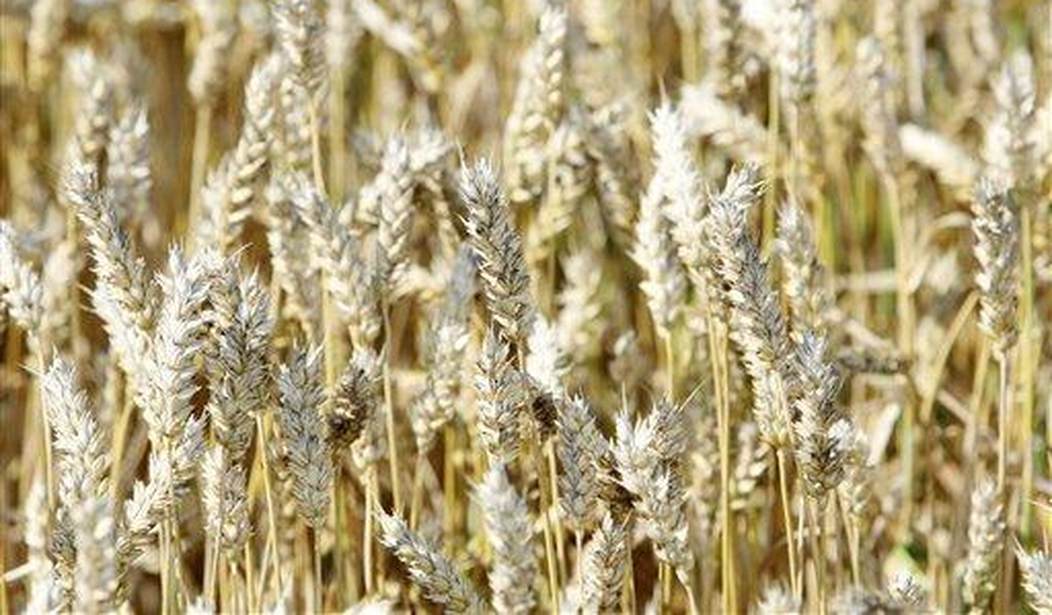Every once in a while I talk to my grandad about what life was like in Ukraine during the Soviet Union. As a passionate patriot of a free Ukraine, he generally doesn’t like to discuss this time in history. But recently, he shared with me a story about the Great Deficit, which occurred in the 1970s, a short time after my dad was born. Products that were made in Ukraine, such as sausages, peas, flour, corn, and buckwheat, were forcefully taken to Russia for sale, leaving Ukrainian shelves empty. It would be an understatement to say it was hard to ensure that he, my grandma, dad, and other family members had enough food in their bellies..
However, the struggles of my grandparents’ generation were only the tip of the iceberg. The USSR’s inhumane starvation policy was at its worst in 1932-33 during which the Soviets orchestrated the Great Famine, known as Holodomor. The Soviets expropriated all Ukrainian grain and other foods. For being unable to meet unrealistic agricultural targets, Ukrainian farmers and peasants were killed, or starved to death, or both en masse. About 10 million Ukrainians died during this hellish time.
Today, despite the horror of these atrocities, the descendants of these Soviet occupiers are, once again, adopting the same policy in many southern Ukrainian regions, such as Kherson.
Russians occupied Kherson in early March. The region is known for its delicious watermelons, tomatoes, and bell peppers. Kherson alone has over 2 million hectares of agricultural land, making it the largest area of arable land in Ukraine. By comparison, all of Ireland has a little over 1 million hectares of agricultural land.
The fertile lands of Kherson and its location on the Black Sea coast have made it a much-wanted target for the Russians. Despite living under the loaded gun, people continue to resist Russian occupiers. To quell any resistance, Russia is attempting to tighten its rule on the occupied territories by pursuing a policy straight from the USSR’s playbook: expropriating agricultural goods and forcing farmers to work without compensation.
Recommended
Albert Cherepakha, an agrarian from the Kherson region, shared a story about the Russian expropriation of his land. "Groups of armed Chechens, who call themselves Kadyrovites [named for Putin’s stooge ruler of Chechnya, Ramzan Kadyrov], entered my farmland in the Genichesk district on 11-12 April. The armed men said that now my company’s property belonged to them. The Chechens warned that if any agricultural goods disappeared and were not accounted for, mass beheadings would occur,” said Cherepakha.
The soldiers also took over Cherepakha’s administrative building and started looting the farm’s agricultural products. A member of the Kherson city council Serhiy Khan, whose enterprise was taken over by Russians, shared a similar story.
Other reports from Kherson claim that Russians have allowed farmers to plant only wheat and sunflower but have demanded that 70 percent of the production be given to them for free. In the neighboring region of Zaporizhzhya, locals spotted a convoy of Russian trucks transporting the stolen wheat.
The expropriated food is taken to Russia and occupied Crimea, where shortages have become widespread. Earlier this week, the Krasnodar regional council announced that “expropriation of surplus last year's and current crops of farmers of the Kherson region will be one of the tools to help small businesses and consumer cooperatives.”
Russians are not only killing Ukrainians, while threatening to use nukes against them, but they are taking food that was supposed to feed both Ukrainians and the world. Ukraine accounts for one-fifth of the global wheat production, with Kherson and Zaporizhzhya being one of the major producing regions. The blockade of the Black Sea has already caused chaos in Africa, which is heavily dependent on Ukrainian wheat imports, and Europe, where politicians are scrambling to reverse the bloc’s unsustainable agricultural agenda.
For decades, Holodomor and the cruelty of the Soviets have been throbbing in the Ukrainian collective memory. Back then, the USSR managed to hide the truth about the Great Famine from the eyes of the world. This time around, we have the power to ensure that one day soon those behind every war crime, death, and stolen crop are brought to justice.
For the sake of my family, millions of other Ukrainians, and people across the world, the expropriation of Ukrainian food must stop and this barbaric plunder, which has plagued Ukraine throughout its history, must never happen again. In the words of my grandad, “Russia is a thug state, they have had nothing on their own, so they want Ukraine, but the world must finally stop them.”
Maria Chaplia is the research manager at the Consumer Choice Center and a visiting fellow at Independent Women’s Forum. Maria was born in the Lviv region, Ukraine.

























Join the conversation as a VIP Member